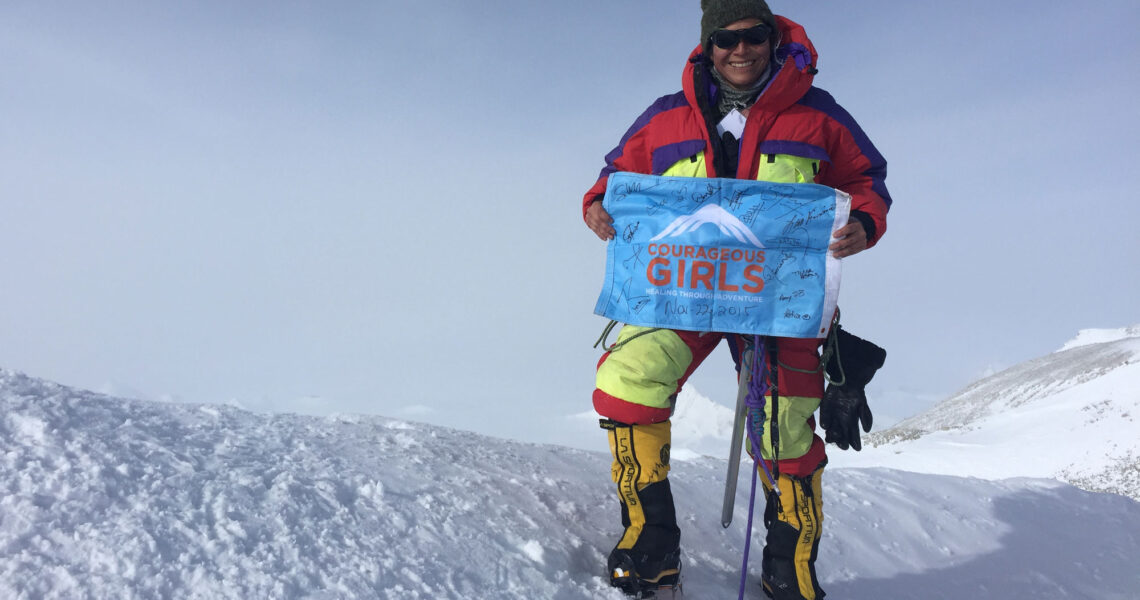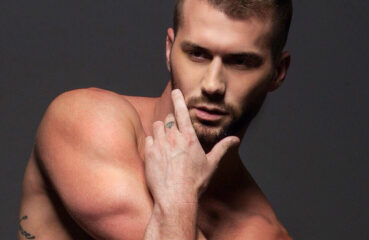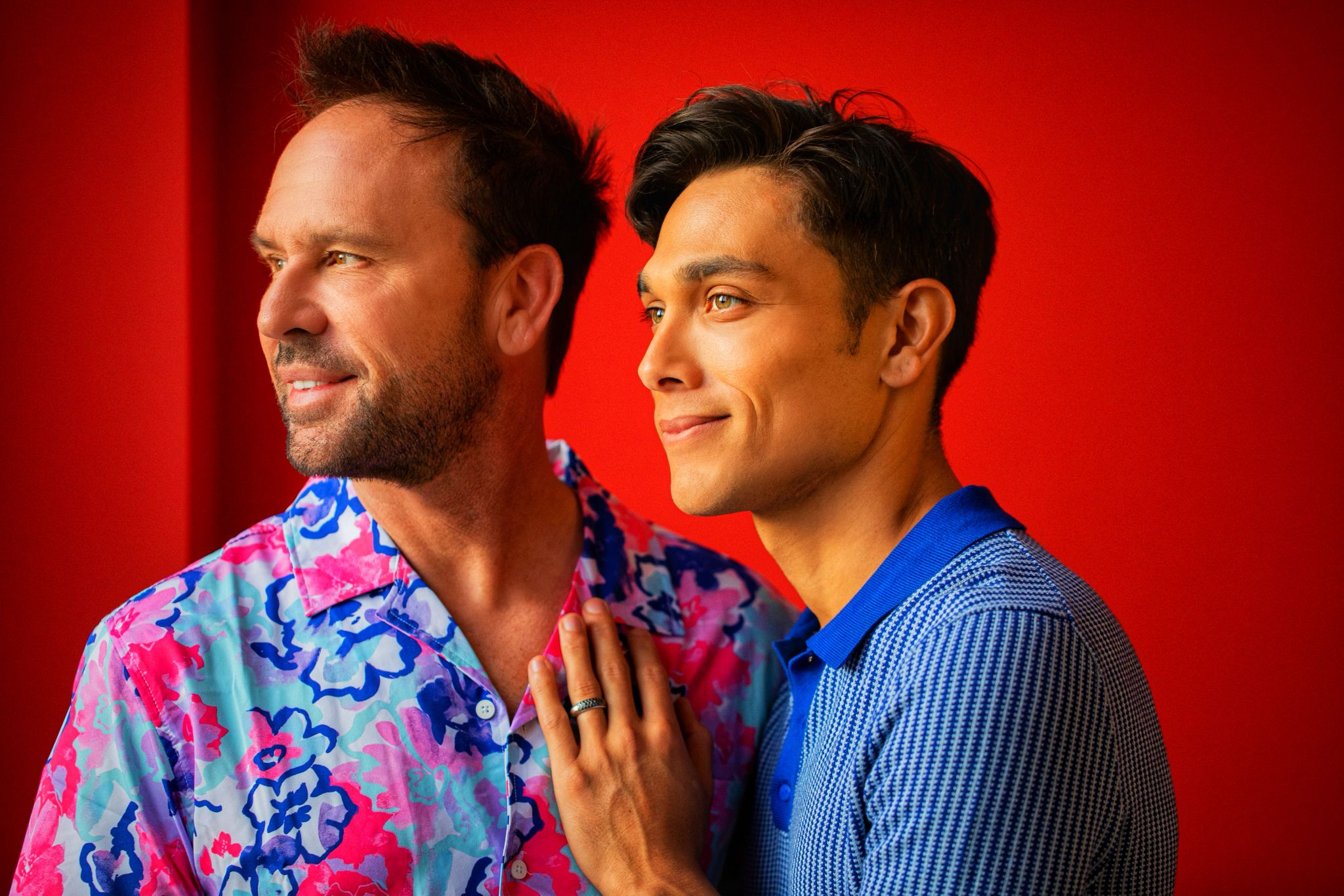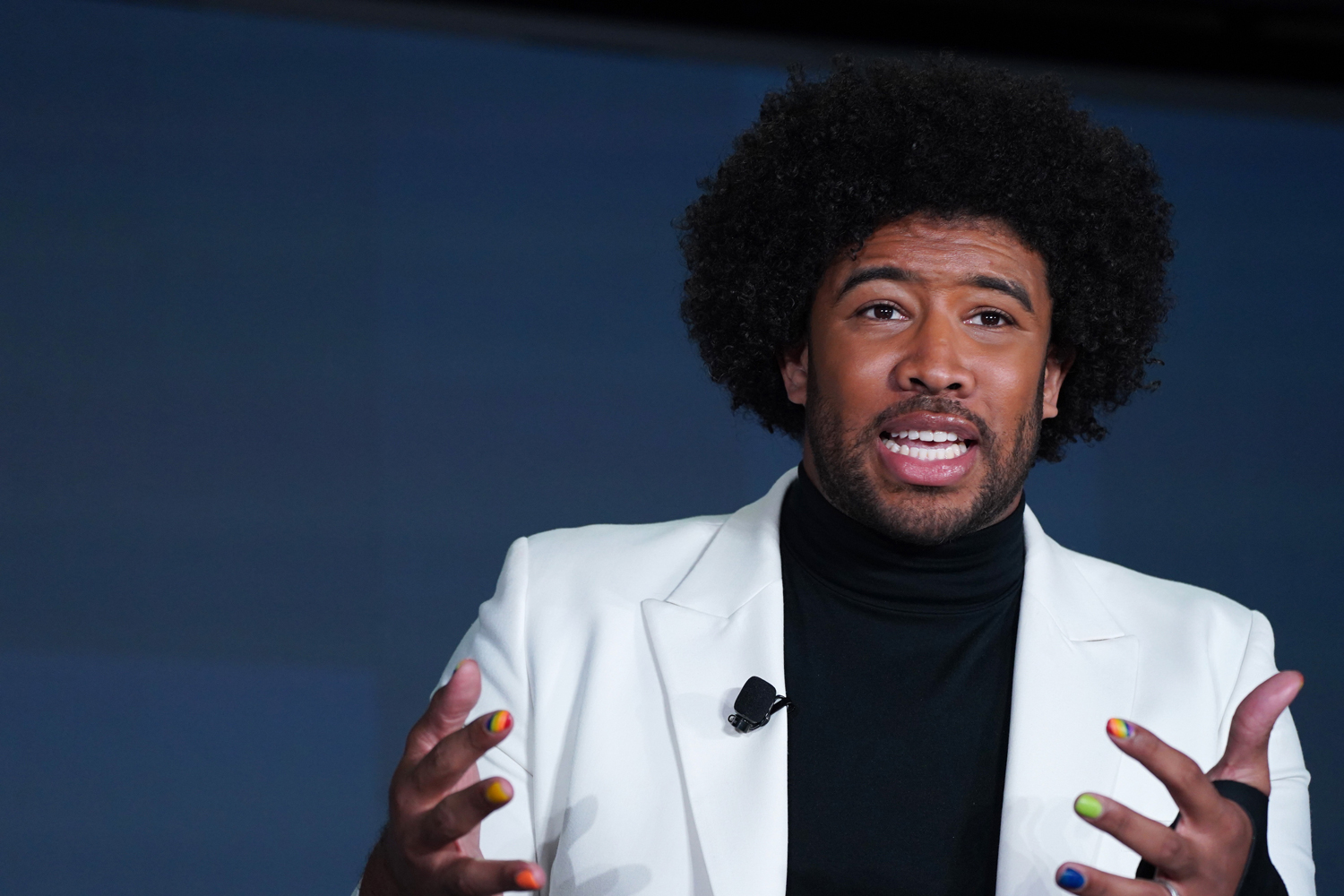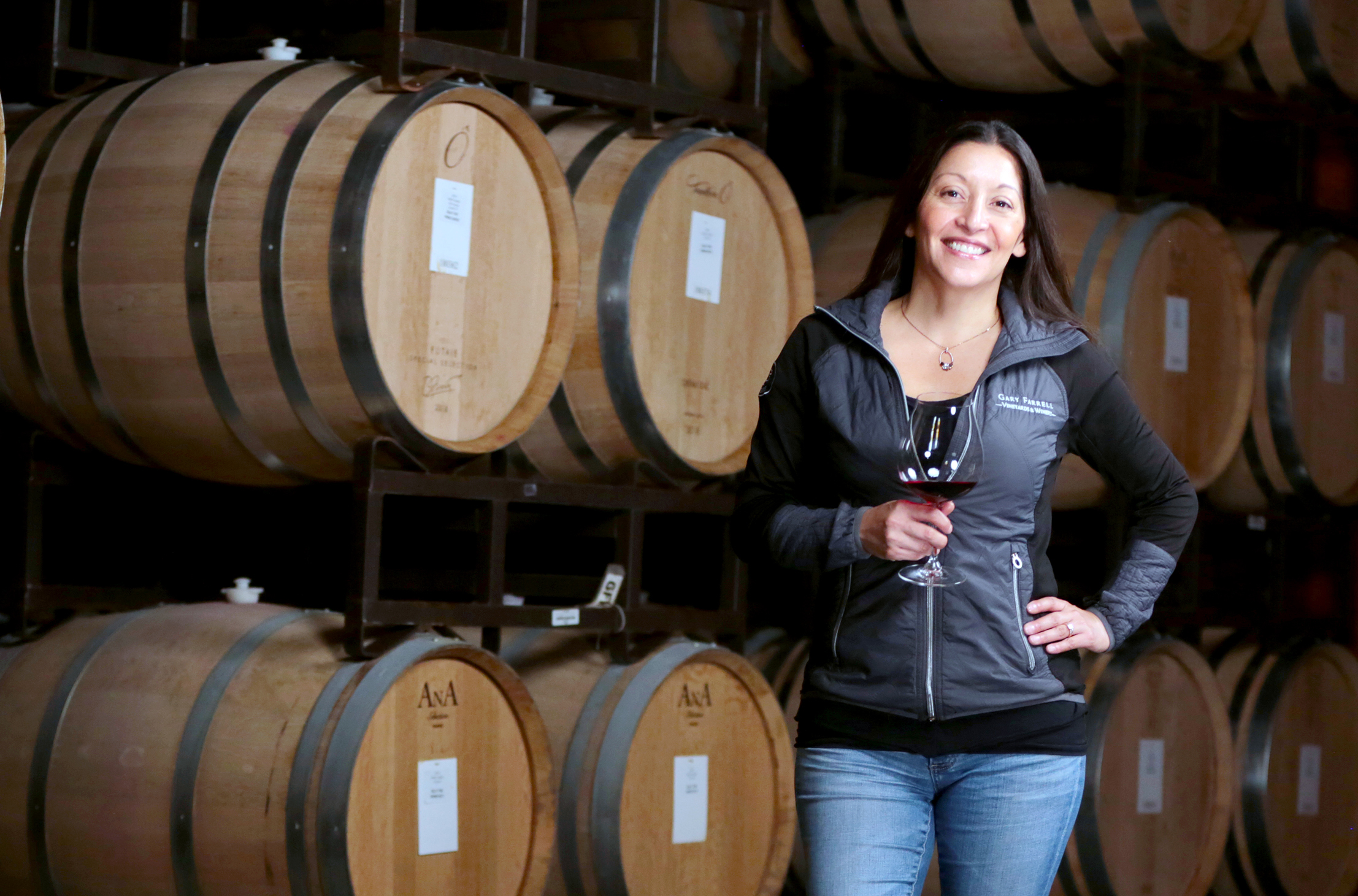Silvia Vasquez-Lavado became the first Peruvian woman to summit Mount Everest, and in 2018 she became the first openly gay woman to climb the Seven Summits, the tallest mountain on each of the seven traditional continents. As a win for diversity, she has held her own against all odds in an environment saturated by wealthy, white men who can afford the funds necessary to climb. For Silvia, climbing was bigger than media glory or personal bragging rights. Her childhood in Peru both formed and destroyed her and after fleeing, she spent years searching for her identity, overcoming sexual abuse, alcoholism, and deep loss. Her hot-off-the-press memoir, In the Shadow of the Mountain, (to hit the screens in a film starring and produced by Selena Gomez) is a visceral and intimate retelling of her journey from a lost girl to the accomplished mountaineer who overcame a multitude of life-threatening climbs, both on a mountain and in her life. As she puts it, “Some people are drawn up the mountain for glory; others are pushed up by pain.”
As a Peruvian child, she was raised in warfare both from the political tides of Peru as well as in her own home.
It was chaotic. We were in the midst of a civil war caused by the resurgence of a communist terrorist movement called The Shining Path, which created a lot of uncertainty, economic chaos, and fear. And personally, for me, I had to endure many years of sexual abuse by a person whom my parents trusted. All that chaos and lack of safety made growing up not fun at all.
As she heartbreakingly details in her book, her father also physically abused her and her mother. Words of love and moments of celebration were often paired with a beating. The beauty of her heritage was marred by machismo sensibility, class system, and the cultural ignoring of violence in the home. Coupled with the years of sexual abuse that went unconfronted filled Silvia’s psyche with self-esteem and emotional issues. Her home was no longer a home.
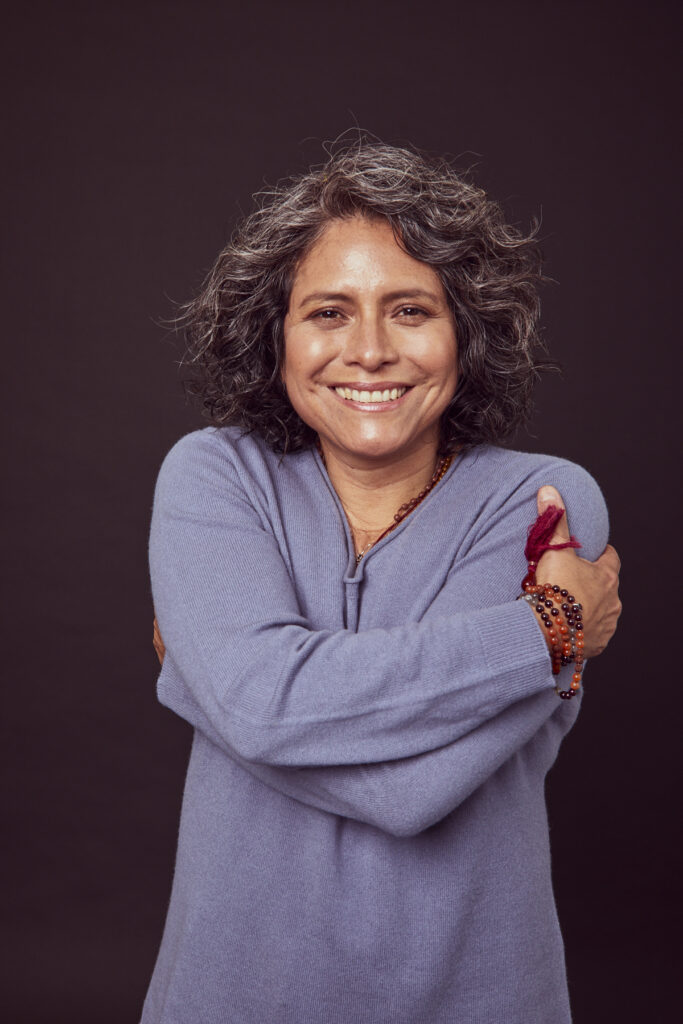 After I was able to tell my mother about my abuse, we went to speak with a psychiatrist who convinced my mother it would be best to send me away from Peru. Hence, I came to the US with an undergraduate Institute of International Education -Fulbright scholarship for molecular biology.
After I was able to tell my mother about my abuse, we went to speak with a psychiatrist who convinced my mother it would be best to send me away from Peru. Hence, I came to the US with an undergraduate Institute of International Education -Fulbright scholarship for molecular biology.
Communication was challenging because I came as an 18-year-old, with Spanish engrained as my primary language. It took me a while to translate everything from Spanish to English, it also took me a long time to assimilate into the culture. The amount of independence that exists here was something I was not used to.
That independence would be a double-edged sword. She would explore her sexuality by secretly frequenting gay bars, looking for companionship, looking for love, looking for intimacy, in ways that she did not fully understand. It would also be her entry into the world of alcohol.
My solution for my trauma was always to run away, hoping that it would fade away. In college, drinking without control was a wonderful way to suppress the feelings. However, once I left the protection of college, I was daunted by the memories, the scars, and the fear. It didn’t help that my first job was with Skyy Vodka, where drinking was heavily encouraged. In addition, when I came to terms with my sexuality, the lack of support from my parents, my family, and my lack of acceptance and self-judgment also pushed me to find solace in drinking.
She details her sober journey quite candidly. She is not a 12-step activist and does not pretend to be a saint when it comes to alcohol. Her story is often shared by members of the LGBTQ community trying to find their identity in the nightlife or solace from trauma in a glass.
Getting sober for me has not been a linear journey. I’ve “fallen off the wagon” too many times to count. Just as I completed the last of the Seven Summits, I went through an excruciating heartbreak due to my drinking (which led to, almost, my 2nd DUI). That was the last straw for me to take full accountability. Per the advice of a dear friend, I started taking a meditation class, Compassion Cultivation Training, and that was indeed the expert healing that allowed me to stay sober, now three and a half years and counting. I practice the CCT meditations daily, and they have been the most fantastic medicine my soul needed.
Silvia’s inspiration to take to the mountains was not typical. It came from her first Ayahuasca experience. Ayahuasca is a South American psychoactive brew that is used as ceremonial spiritual medicine and comes from the indigenous people of the Amazon basin. Fitting that an experience cultivated by her culture would also be the spark for her to overcome the bonds of that same culture.
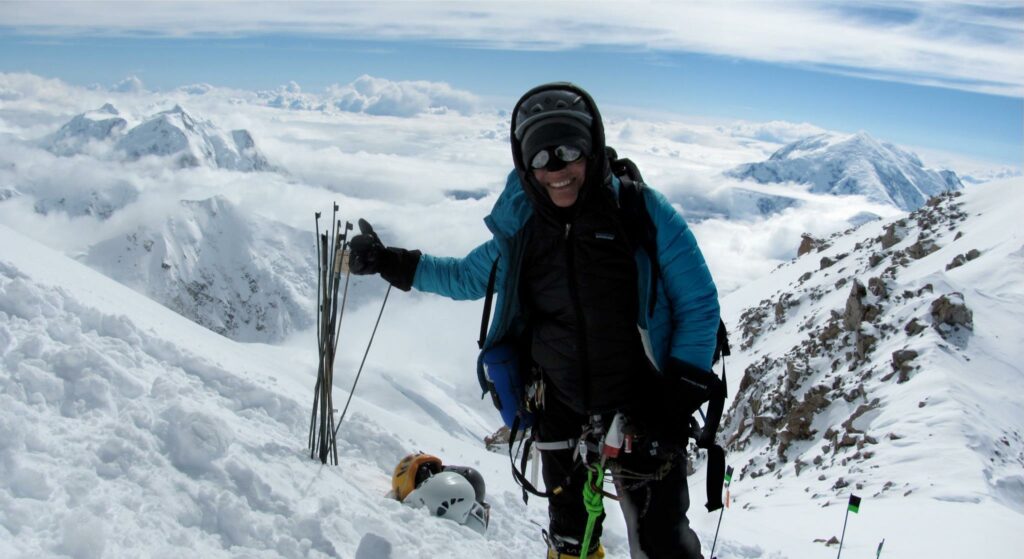 It was my mother’s idea, and it changed my life. It allowed me to connect to the root of the deepest pain inside of me and gave me the inspiration to be on this journey. I followed the strict diet and restrictions to have my body ready, and it truly allowed me to unlock the trauma inside my subconscious. In my memoir, the whole Ayahuasca chapter is so beautifully captured. I cannot wait for you all to read it.
It was my mother’s idea, and it changed my life. It allowed me to connect to the root of the deepest pain inside of me and gave me the inspiration to be on this journey. I followed the strict diet and restrictions to have my body ready, and it truly allowed me to unlock the trauma inside my subconscious. In my memoir, the whole Ayahuasca chapter is so beautifully captured. I cannot wait for you all to read it.
At the time she started her Seven Summit journey, fewer than 200 hundred people had successfully accomplished the feat, with very few being women. Her mission began, though her climbing experience left much to be desired.
(It was) nonexistent. Even though I come from a mountainous country, and my parents’ heritage is of the mountains, my exposure to them growing up was minimal. The first time I went to the base of Everest was my first whole hiking experience.
In Silvia’s words, seeing Everest is to experience awe:
It is that sense of being both small and a part of something so much bigger than our smallness. Awe is the gateway drug to healing trauma through nature. Awe must be experienced.
The first time I went to the base of Everest, I promised that I would return to climb the mountain under two conditions: 1) return as a seasoned mountaineer so that I would not put anyone in jeopardy; and 2) return with a social cause. By climbing the Seven Summits, I figured that I would get the appropriate experience and exposure to become a mountaineer who could attempt Everest.
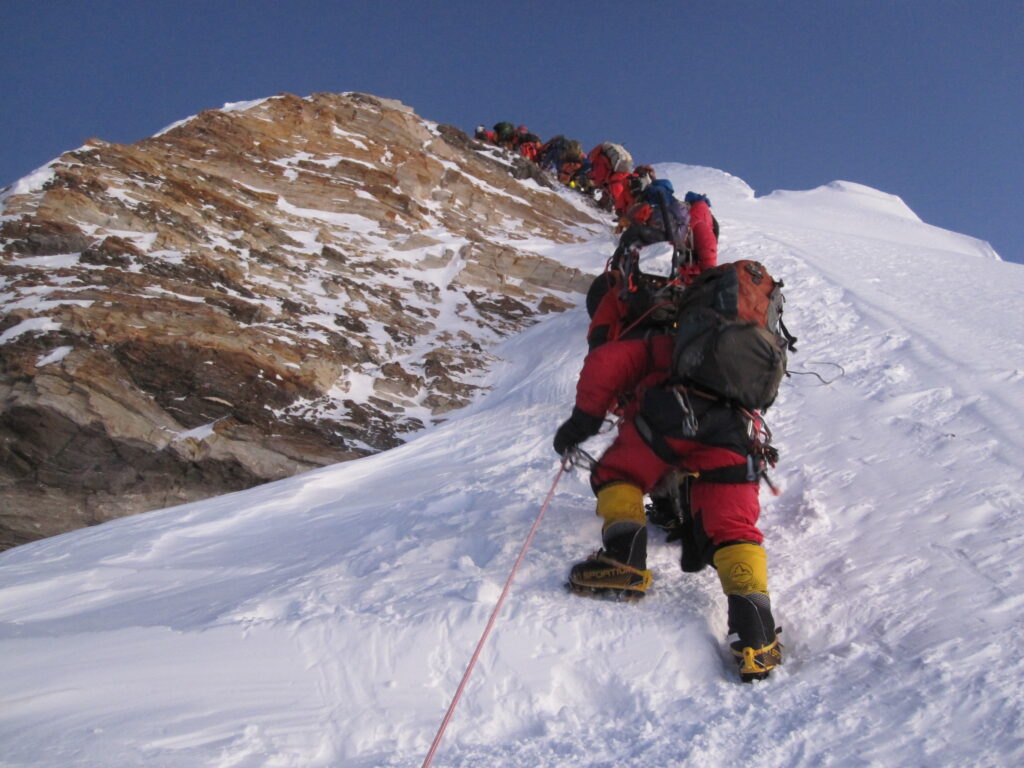 She met those conditions and has used her platform to found Courageous Girls, a non-profit dedicated to healing and empowering survivors of violence and abuse through adventures in nature. Through providing guided treks to the base camp on Mount Everest, they provide young women who are victims of sexual abuse an opportunity to share their stories and prove to the world, and themselves, that nothing can hold them back.
She met those conditions and has used her platform to found Courageous Girls, a non-profit dedicated to healing and empowering survivors of violence and abuse through adventures in nature. Through providing guided treks to the base camp on Mount Everest, they provide young women who are victims of sexual abuse an opportunity to share their stories and prove to the world, and themselves, that nothing can hold them back.
Her first climb would provide a life lesson:
The most shocking understanding has been to learn how far your legs and feet can take you. My favorite quote and mantra from Lao Tzu claims, “The journey of a thousand miles begins with one step.” That has been the most shocking finding in climbing for me.
The lesbian vegetarian allergic to gluten, in close quarters and grueling conditions with only men as her companions and her sexuality buzzworthy, made her journey that much more isolating. Her book recounts her moments where she defeatedly gave her will over to the fate of the mountains, just to find strength for the next step.
Mountains have taught me that brute strength and ego do not guarantee a summit. Many of the risky situations I had to endure, such as fear and doubt, have led me to ignore the menial things, i.e., the homophobic chatter. When your life is literally hanging by a thread, you learn to ignore what won’t keep you safe. To know that I am climbing for myself has been a fantastic fuel.
Once, a homophobic guide derailed my chances of making it to the summit in one of my expeditions. I could not control the outcome, yet I remember feeling this rage because I knew he did it because he was homophobic. It was tough to accept at the time, but it was humbling to learn how it is so important to keep pushing for representation. I also turned all that negative energy as the impetus to return even more prepared, and I was able to summit on my next try.
Many of us in the LGBQT+ community, who had little support, have learned to develop a sense of resilience that has helped us survive. I love how we can take this powerful skill and apply it to other areas of our lives!
After the long road to being proud of her sexuality, it was imperative for the world to know that a lesbian did this, a lesbian fought the odds and won, a lesbian outlasted several homophobes who could not even finish the journey.
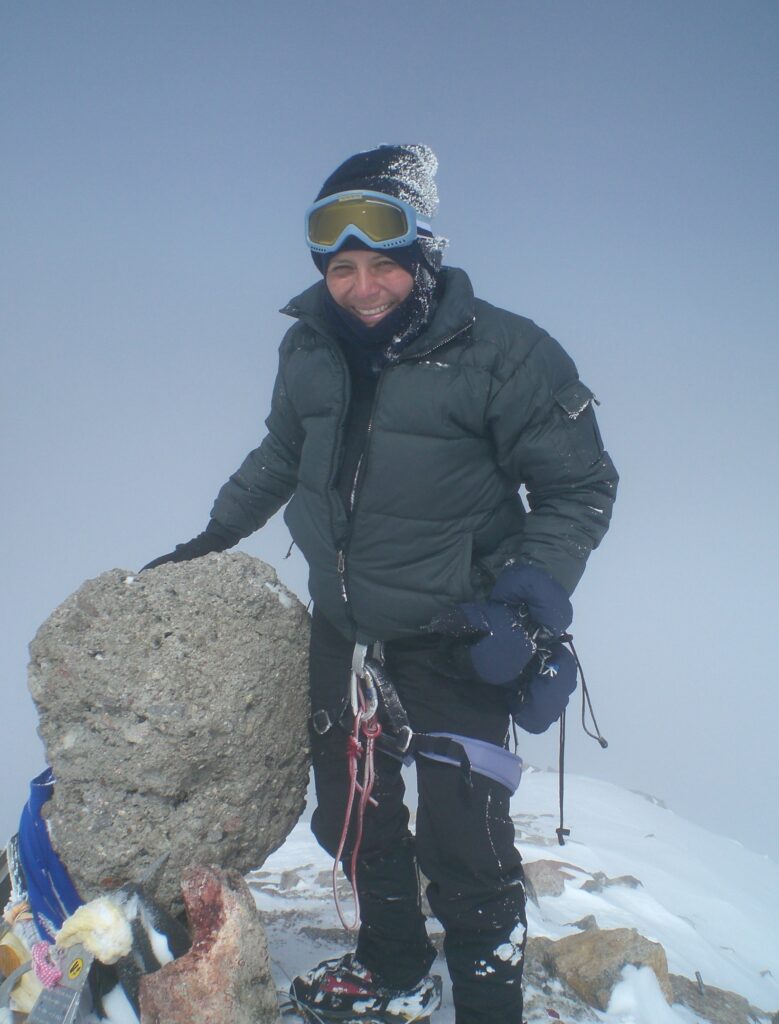 We still live in our world, in which being who we truly are can be deadly. So, for me, to declare that I’m the first openly gay to complete the Seven Summits is about representation. Until we have entirely accepted gayness worldwide, we need to celebrate all our gay brothers and sisters who are trailblazing their way through many barriers.
We still live in our world, in which being who we truly are can be deadly. So, for me, to declare that I’m the first openly gay to complete the Seven Summits is about representation. Until we have entirely accepted gayness worldwide, we need to celebrate all our gay brothers and sisters who are trailblazing their way through many barriers.
I am incredibly proud to have seen how being an openly gay mountaineer has inspired many people in my country (which is traditionally relatively closed-minded) to come forward. It brightens my heart when I get letters from people from all over the world who tell me that my story has inspired them to embrace their true identities.
Completing the Seven Summits was a lone journey. Yes, she met people on the way, but clinging to the rocks, buffeted by the icy winds and freezing temperatures, she was alone with her loss, her abuse, her strength, and her passion. What did she learn the most from her climbs?
That you are unable to control everything. To embrace the acceptance of delays and setbacks. And to know that you will always have a difficult day, and it’s ok to experience them and continue your journey the next day.
To each summit, she took a picture of herself as a young girl, pigtails and all. That picture and what it represented was originally an object of scorn, she wanted to be the farthest from her past as possible. It took climbing the Summits for her to love that little girl and to come to terms with her sexual abuse. A copy of that picture is now on every one of the Summits. Her story is a source of inspiration for the young women she takes to Base Camp of Mount Everest. The women she mentors have survived human trafficking, being sold and brutalized by their families. Her advice to sexual abuse survivors is constant.
FIRST, to know that what you have gone through is not your fault. You are whole and beautiful and have your entire life ahead to embrace the light in your heart.
When you kickstart the healing process, self-acceptance and self-love are the first qualities to emerge. By working on our healing, we will also open ourselves to have the capacity to give love. Providing love into the world in all its forms is what heals everything.
Being in nature helped me accept and start my healing, nature has always been accepting of who I am, and I know for any survivor, you will see the difference it can make in your life.
When asked about the proudest moment of her life, it isn’t even climbing that final summit.
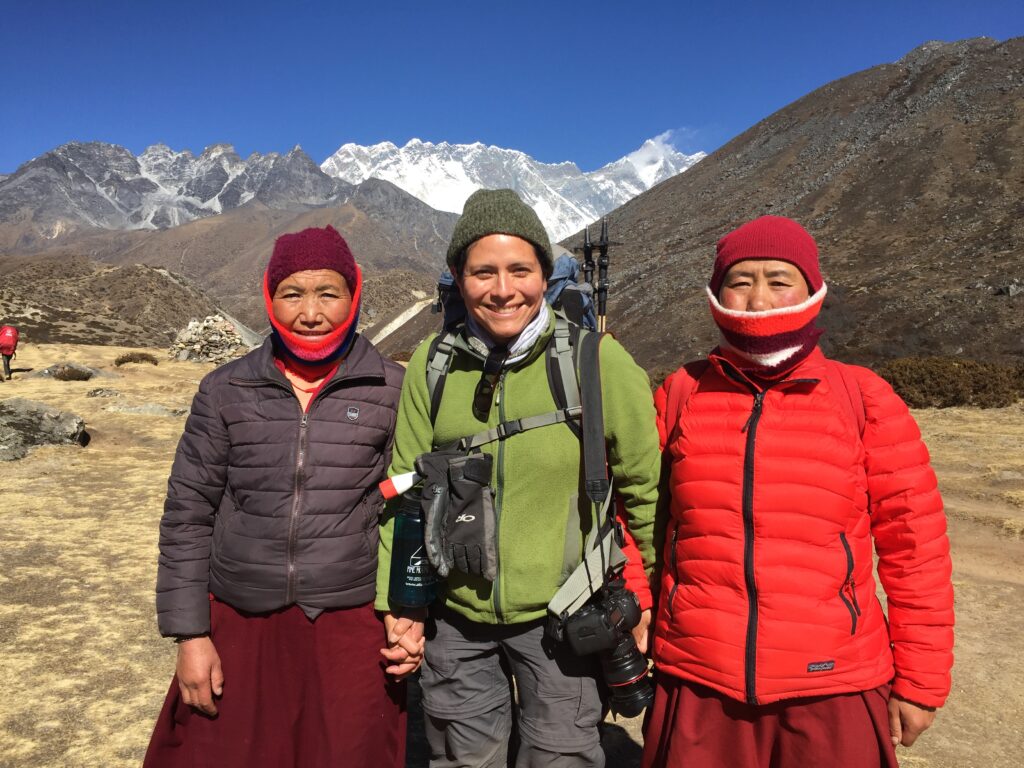 I am so proud to bring my memoir In the Shadow of The Mountain into the world. I am incredibly proud of how raw, honest, vulnerable the book is. It is a powerful testament about reclaiming our voice and power, especially when we are willing to surrender and touch on our deepest vulnerabilities.
I am so proud to bring my memoir In the Shadow of The Mountain into the world. I am incredibly proud of how raw, honest, vulnerable the book is. It is a powerful testament about reclaiming our voice and power, especially when we are willing to surrender and touch on our deepest vulnerabilities.
Writing this memoir was the most challenging experience I endured. I think for many of us, sharing something that can be so painful could be the equivalent of trying to boil the ocean. Luckily, I had incredible guidance and mentorship that helped me on every single step. I’m also quite fortunate to work with such a fantastic therapist who specialized in somatic therapy and helped me dive deeper into so much of the pain. As a result, I spent many of my sessions last year analyzing the areas of trauma that were difficult to retrace and find meaning.
The book is a page-turner. Starting in the middle of a perilous climb and spreading out like a skillfully woven tapestry, Silvia’s life unfolds in an intoxicating blend of childhood memories, her youth in sexuality, and her climb up the mountain. Included in American Booksellers Association as Independent Booksellers’ Debut Pick of the Season, Elle magazine included Silvia in their Nine Latinx Women Changing the World, and she has been lauded by the LGBTQ media. Of course, Hollywood would come calling.
My literary agency has an agreement with WME to share their upcoming book proposals and for them to evaluate the possibility for media development. The head of the book-to-film division fell in love with In The Shadow of The Mountain while it was still on a book proposal format, and that is what kickstarted this incredible “Cinderella mountainous ride!”
The Hollywood Reporter and Variety led in the trades with the fact that Selena Gomez was producing as well as starring in the biopic.
Selena Gomez is one of Hollywood’s talented, driven, and generous leaders. She is a fierce human rights activist who has taken an enormous risk to take on a story that most traditional publishers and media houses were too scared to touch. Her openness and vulnerability are qualities I truly admire, and I know she will bring them forward in the role.
In the current, heated environment where the movement for gay to play gay is fierce, does Silvia have any trepidation in Selena playing her?
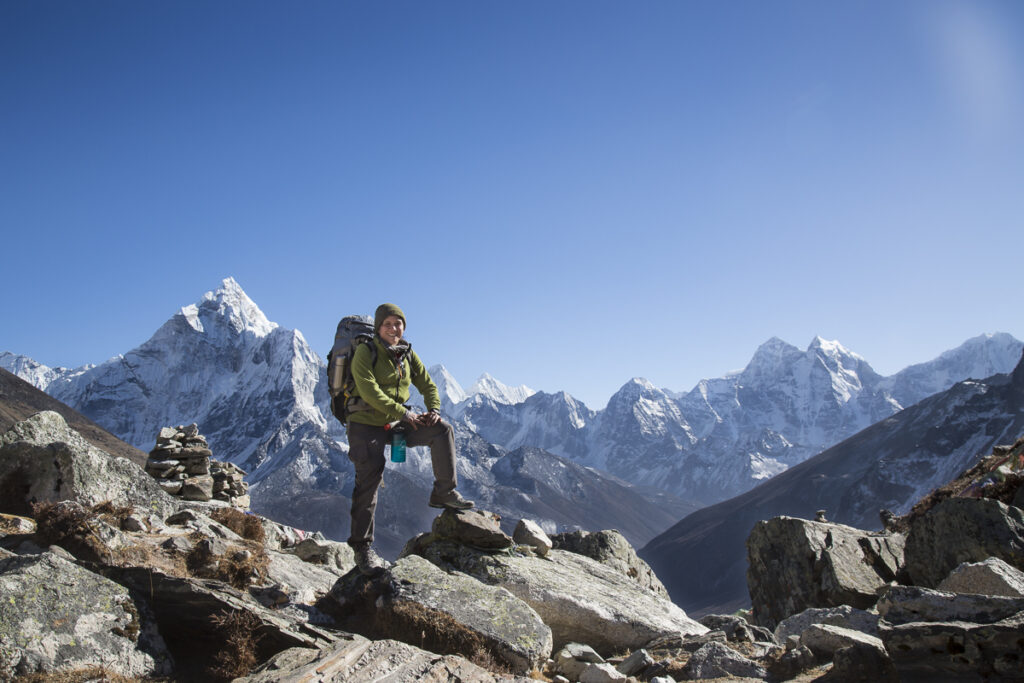 To me, actors are a master of their craft, and their ability to embody and portray somebody who is not them is part of their science and their craft. With my limited exposure to this world, it would feel quite limiting if we only allow straight actors to play straight roles and gay actors to play gay roles. We will be unfairly boxing them. This is part of a more extensive conversation.
To me, actors are a master of their craft, and their ability to embody and portray somebody who is not them is part of their science and their craft. With my limited exposure to this world, it would feel quite limiting if we only allow straight actors to play straight roles and gay actors to play gay roles. We will be unfairly boxing them. This is part of a more extensive conversation.
My memoir and story are not just about climbing mountains and being gay. It is a story about healing, about self-acceptance, about finding who you are when the world has stripped you of your identity. The heart of my story is healing and is not about healing alone, but healing in the community.
Selena will not be the only person in the film. And my dream is to have a genuinely ultimate diverse cast and team to bring the story forward. For example, it would be amazing to have a gay actor play my mom because our relationship was so fractured during my lifetime. In her own right, my mother was a victim of her circumstance, her own culture, our upbringing, and her belief system – same with my father. It would be something if gay actors could play those characters.
By bringing my memoir into a film, we could bring the story out to as many people as possible and not just to represent gay people, but to represent immigrants, to represent the abused, to represent the survivors of some of the most horrific crimes that can be perpetrated against another human being. And if we were to focus on saying that the most important thing here was simply to have a gay person play the role of me, we would be missing a much more significant part of the story.
Her book will be translated in German, French, Korean, Japanese, Spanish, Polish and Czech, and possibly more languages. She wants to get her story out there to inspire people to climb their own Everest, whether physically or internally. As if the debut of her book and the film were not enough, she is off to tackle the grueling skiing of the North Pole in April, and the South Pole at the end of the year. For her, there is no summit that cannot be reached.
In the Shadow of the Mountain is now available at booksellers and online.
Last modified: February 19, 2022

